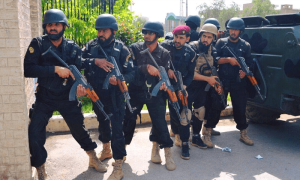The native Pashtun tribes, who are often described as fiercely independent people, have inhabited the Pashtunistan region since at least the 1st millennium BC. Much of their mountainous territory has always remained without government rule or control. This is perhaps the main reason why the indigenous Pashtuns still follow Pashtunwali codes, which is a basic common law of the land or “code of life”.
Pashtunwali rules are accepted in Afghanistan and Pakistan (mainly in and around the Pashtunistan region), including by some of the Pashtun communities around the world.
Some non-Pashtun Afghans and others have also adopted its ideology or practices for their own benefit. On the other hand, many urbanized Pashtuns tend to ignore the rules of Pashtunwali most of the time. Passed by generation to generation, the Pashtunwali rules guide both individual and communal conducts. It is socially practiced by the majority of the Pashtuns and helps to promote Pashtunization.
Ideal Pukhtun behaviour approximates the features Pukhtunwali, the code of the Pukhtuns, which includes the following traditional features: courage (tora), revenge (badal), hospitality (melmestia), generosity to a defeated…
—Maliha Zulfacar, 1999
Pashtuns embrace an ancient traditional, spiritual, and communal identity tied to a set of moral codes and rules of behavior, as well as to a linear record of history one thousand and seven hundred years.
Pashtunwali promotes self-respect, independence, justice, hospitality, love, forgiveness, revenge and tolerance toward all (especially to strangers or guests). It is considered a personal responsibility of every Pashtun to discover and rediscover Pashtunwali’s essence and meaning.
It is the way of the Pathans. We have melmestia, being a good host, nanawatai, giving asylum, and badal, vengeance. Pashtuns live by these things.
—Abdur, A character in Morgen’s War
Main principles
From left to right: Jamaluddin Badar, Nuristan governor, Fazlullah Wahidi, Kunar governor, Gul Agha Sherzai, Nangarhar governor, and Lutfullah Mashal, Langhman governor, listen to speakers during the first regional Jirga to talk about peace, prosperity and the rehabilitation of Afghanistan.
Components:
1.Melmastia (hospitality) – Showing hospitality and profound respect to all visitors, regardless of distinctions of race, religion, national affiliation as well as economic status and doing so without any hope of remuneration or favour. Pashtuns are widely considered to be the most hospitable people in the world and a Pashtun will go to great extents to show his hospitality.
2.Nanawatai (asylum) – Derived from the verb meaning to go in, this is used for protection given to a person who requests protection against his/her enemies. The people are protected at all costs, in many cases even people running from the law must be given refuge until the situation is clarified. It can also be used when the vanquished party is prepared to go in to the house of the victors and ask for their forgiveness. (Is a peculiar form of “chivalrous” surrender, in which an enemy seeks “sanctuary” at his enemy’s house).
3.Badal (justice) – To seek justice or take revenge against the wrongdoer. This applies to injustices committed yesterday or 1000 years ago if the wrongdoer still exists. Justice in Pashtun lore needs elaborating: even a mere taunt (or “Paighor”) is regarded as an insult – which can only usually be redressed by shedding of the taunter’s blood (and if he isn’t available, then his next closest male relation). This in turn leads to a blood feud that can last generations and involve whole tribes with the loss of hundreds of lives. Normally blood feuds in this all male dominated setup are then settled in a number of ways.
4.Tureh (bravery) – A Pashtun must defend his land/property, family and women from incursions wherever he or she might reside. A Pashtun should always stand brave against tyranny and he should always be able to defend his property, family, women and the honour of his name. Death can follow if anyone mistreats these traits.
5.Sabat (loyalty) – Loyalty must be paid to one’s family, friends, and tribe members. Loyalty is a must and a Pashtun can never become disloyal as this would be utterly shameful towards themselves and their families.
6.Imandari (righteousness) – A Pashtun must always strive towards thinking good thoughts, speaking good words and doing other good deeds. Pashtuns must behave respectfully towards all creations including people, animals and the environment around them. Pollution of the environment or its destruction is against the Pashtunwali.
7.Isteqamat – Trust in God (known as “Allah” in Arabic and “Khudai-ta-Allah” in Pashto). The notion of trusting in the one Creator generally comports to Islamic idea of belief in only one God (tawheed).
8.Ghayrat (self honour or dignity) – Pashtuns must maintain their human dignity. Honour has great importance in Pashtun society and most other codes of life are aimed towards the preservation of one’s honour or pride. They must respect themselves and others in order to be able to do so, especially those they do not know. Respect begins at home, among family members and relatives.
9.Namus (Honor of women) – A Pashtun must defend the honor of Pashtun women at all costs and must protect them from vocal and physical harm.







